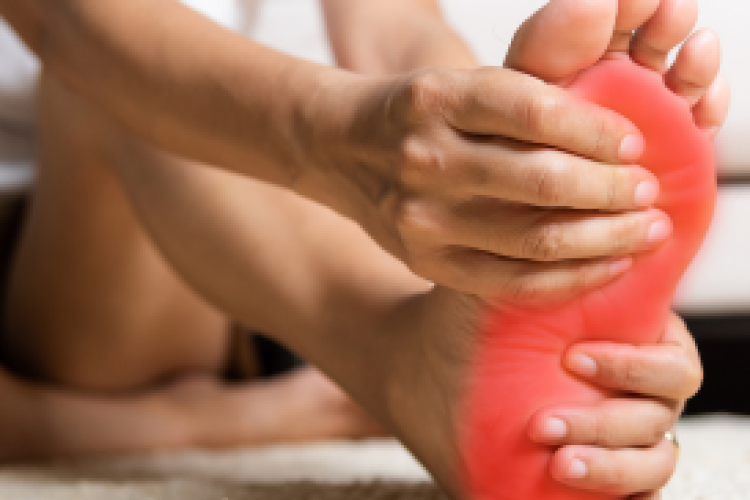
An estimated 10% of women of childbearing age have a health condition known as polycystic ovary syndrome (PCOS). Women with PCOS have hormonal imbalances and metabolism problems that may affect their overall health, appearance and fertility. PCOS is linked to other health problems, including prediabetes and diabetes, high blood pressure and cholesterol, depression and anxiety, and endometrial cancer.
Women with PCOS often have prediabetes because their insulin levels are high, said Christos Paras, D.O., a clinical endocrinologist with Highland Medical Endocrinology, Diabetes and Metabolism at Montefiore Nyack Hospital. They have what is called insulin resistance when the body’s cells do not respond normally to insulin. “In 70% of women with PCOS, treating this insulin resistance with diet, physical activity and sometimes medication can help manage all their PCOS symptoms,” Dr. Paras said.
“PCOS is complicated because it involves insulin metabolism, but also involves an imbalance of male and female hormones that interferes with a woman’s periods and fertility,” he said. “Fortunately, in many cases treating the insulin resistance can resolve problems with a woman’s periods and fertility.”
Who Gets PCOS?
Between 5% and 10% of women between 15 and 44 have PCOS. While PCOS can happen at any age after puberty, many women find out they have the condition in their 20s and 30s, when they have problems getting pregnant. Women are at higher risk for PCOS if they have a mother or sister with PCOS or have obesity.
What Causes PCOS?
The exact cause is not known, but it is clear that several factors are involved. These include high levels of male hormones called androgens. Women normally make small amounts of androgens. Women with PCOS have more androgens than normal. This can interfere with a woman’s menstrual cycle and cause extra hair growth and acne. Another factor in PCOS is high levels of insulin due to insulin resistance. Many women with PCOS have insulin resistance, especially if they are overweight or obese, have unhealthy eating habits, do not get enough exercise, and have a family history of diabetes.
Symptoms of PCOS
Some women with PCOS don’t have any symptoms, and only find out they have the disease when they try getting pregnant or gain weight for unknown reasons.
For women who do have symptoms, they can include:
• Irregular menstrual cycle. This can lead to fertility problems and the development of cysts on the ovaries.
• Too much hair on the face, chin, or parts of the body where men usually have hair.
• Acne on the face, chest, and upper back
• Thinning hair or hair loss on the scalp
• Weight gain or difficulty losing weight
• Darkening of skin, particularly along neck creases, in the groin, and underneath breasts
• Skin tags, small excess flaps of skin in the armpits or neck area
Diagnosing PCOS
Diagnosing PCOS may include:
• Physical exam
• Pelvic exam to look for signs of extra male hormones and check to see if your ovaries are enlarged or swollen
• Sonogram to check your ovaries for cysts and check the endometrium (lining of the uterus or womb)
• Blood tests to check your androgen hormone levels and test for diabetes
Treating PCOS
While there is no cure for PCOS, there are a variety of treatments a woman and her doctor can choose from depending on her age, plans for having children, and risk for long-term health problems such as diabetes and heart disease. Many women are given a combination of treatments. “Treatment depends in large part on a woman’s stage of life. Is she trying to start a family, or is she more concerned with her appearance? These questions help inform treatment choices,” Dr. Paras said.
The first step is often to treat the insulin resistance, he said. “We start with a healthy diet and exercise. The diabetes medication metformin is often used to treat type 2 diabetes and can help some women with PCOS by lowering both insulin and androgen levels. It can restart a woman’s period.” This means metformin can increase fertility, so if a woman doesn’t want to become pregnant, she needs to be on birth control, he said.
If treating insulin resistance does not restart a woman’s menstrual cycle, then hormone birth control, such as birth control pills, can be used. “It’s important for a woman to have regular periods to lower their risk of endometrial cancer,” Dr. Paras said. Hormone birth control can also help improve acne and reduce extra hair on the face and body.
Some women are prescribed anti-androgen medicines to help reduce scalp hair loss, facial and body hair growth, and acne. These medicines can cause problems during pregnancy, so a woman taking them should be on birth control.
For women with PCOS who want to become pregnant, metformin is often successful in restoring fertility. “If it doesn’t work, then they can move on to other fertility drugs to stimulate ovulation,” Dr. Paras said.
“By discussing her priorities, a woman and her doctor will develop a PCOS treatment plan that keeps her healthy, manages symptoms and takes into account her family planning goals,” he said.
If you are experiencing symptoms of polycystic ovary syndrome and would like to schedule an appointment, please call 845-897-8371.
For more information, visit www.highlandmedicalpc.com/specialties/endocrinology-diabetes-metabolism.



 Upcoming Events
Upcoming Events



